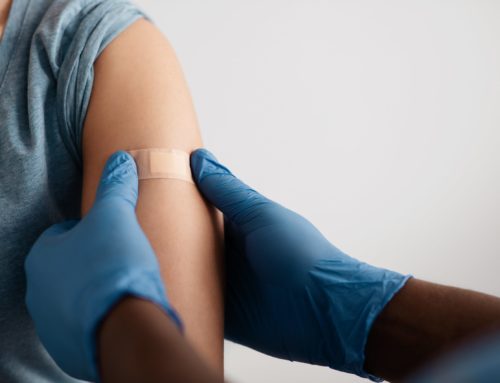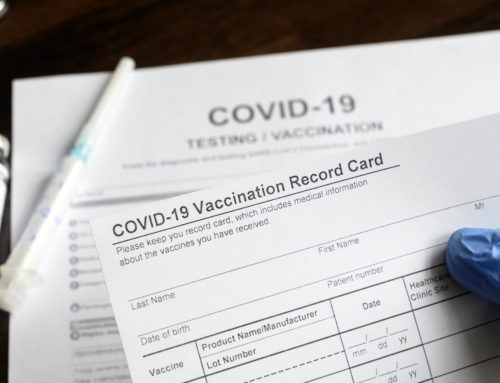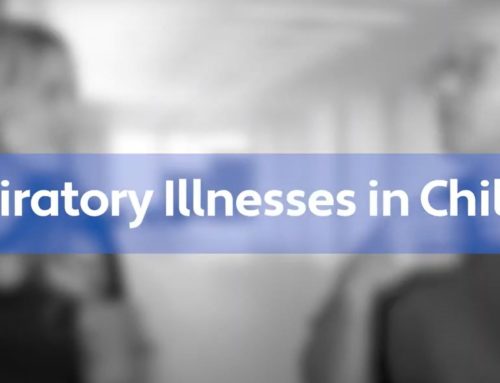Masks have become voluntary, social distancing guidelines have been eased and travel has started to pick back up again. However, there is now some hesitancy as a stronger COVID-19 variant is spreading quickly. Especially because less than 70% of the United States is vaccinated, with the majority of the unvaccinated population being under the age of 45.
Have you gotten the COVID-19 vaccine yet? If you haven’t, in the video below, affiliated TopLine MD Alliance physicians answer the most common concerns and myths.
Were the COVID-19 vaccines rushed, and therefore cannot possibly be measured as safe for long-term effects?
Dr. Andrew Martin, Infectious Disease Specialist
There are many reasons why they were able to do this very quickly. The first is the technology was not available for previous vaccinations. It’s the new technology that has worked very well. Two, we basically dropped everything we were doing. The pharmaceutical companies that were producing these put large teams to work on this immediately. One of the reasons they were able to do that was government funding. So, we funded with, I believe $300 billion vaccination effort, which has never happened before. Part of the reason why sometimes these vaccines take time is the amount of money it takes to produce them. In this case, they had immediate funds available to them. The other is that as a scientist, it couldn’t have been a better time to test the vaccine because we were in the middle of a pandemic. Usually when they develop a vaccine and when they start testing, they have to wait sometimes years for somebody to be exposed to whatever they’re trying to prevent. We were in the middle of a pandemic. You were getting exposed every single day. They were able to gather hundreds of thousands of patients into studies to test the vaccine immediately.
Can the COVID-19 vaccines cause infertility in both women and men?
Dr. Dibe Martin, Maternal Fetal Medicine Specialist
There’s a lot of things out in the late press that say that men and women that get vaccinated may have decreased fertility later on in life. Or that because we’re giving a vaccination that hasn’t been tried and true for a long time, women that are pregnant are going to have babies that have long-term complications. We have to remember that there’s two types of vaccines, the mRNA and the adenovirus vaccine. With these two different vaccines, there’s never been any information that shows that there’s any long-term side effects. Side effects after vaccination, yes, but most of them are mild. Unless there’s other things that we’re looking at specifically, it is a lot worse to get sick from COVID when you’re pregnant.
Since children are less likely to get severe illness from the coronavirus, is there a need for them to receive a COVID-19 vaccine?
Dr. Madelyn Dones, Pediatrician
A COVID-19 infection is not a good option for anyone. Even though disease appears to be mild, we know that the virus crosses into the blood-brain barrier pretty easily. That results in loss of taste and smell. So, there is no case where mild infection is not significant infection. It may not appear that way on the outside, but we don’t know what the long-term consequences will be of having COVID-19 in different organs in your body. I would much prefer to prevent infection in my brain or in any of my child’s organs versus to roll the dice and assume that they will be better off being infected.
Is there a point to getting the COVID-19 vaccine if you can still get the coronavirus?
Dr. Andrew Martin, Infectious Disease Specialist
Vaccination does not mean you cannot get COVID-19. These vaccines are not 100% effective. You can still get COVID-19 with the vaccine. Now, being vaccinated will probably give you a very mild case of the disease. As with Johnson & Johnson, their studies have shown that 0% of their patients for the most part end up hospitalized. Those are great numbers. That doesn’t mean you can’t get sick and you can’t transmit it to somebody else. Many times, I think what you have to think about is not only about yourself, but you have to think about those individuals who are susceptible around you that can get sick because you’re going to be the transmitter.
Have children had severe side effects from getting the COVID-19 vaccine?
Dr. Madelyn Dones, Pediatrician
I think the parents are confused about the side effects of the vaccine. The side effects are very mild. You can have soreness at the site of vaccination. You can have fatigue. You can have some chills and fever, headache, myalgias, joint pains, but that’s pretty much the extent of the side effects. Very rarely, there have been a few cases of myocarditis, which is inflammation of the muscle of the heart, and that has caused some parents to hesitate. I would urge them to reconsider because the incidence of myocarditis with a COVID-19 infection is exponentially greater than with the vaccine. So, if you compare risk and benefits, the benefits of vaccination far outweigh any risk.
Can the COVID-19 vaccine enter and alter your DNA?
Dr. Andrew Martin, Infectious Disease Specialist
Since COVID-19 vaccines use the technology of a messenger RNA vaccine, I think that that has been a concern by many people from the beginning. However, because it’s a messenger RNA, it doesn’t mean it can interfere with your own chromosomes and alter your own DNA? The answer is no, it cannot. The vaccine does enter the cell, but it stays in the cytoplasm. The cytoplasm is kind of a liquid environment in which the nucleus of the cell floats in or lives in. The messenger RNA never enters the nucleus of the cell, which is where our DNA is. So therefore, it never interferes with our DNA meaning it cannot alter the DNA. On top of that, the messenger RNA in the vaccine actually gets degraded fairly quickly after it enters the cell. So, that is false. It does not alter the DNA. It will not cause any long-term effects in regards to chromosomal alteration.
Is it dangerous for pregnant women to receive a COVID-19 vaccine?
Dr. Dibe Martin, Maternal Fetal Medicine Specialist
When pregnant women do get vaccinated depending on the stage of the pregnancy, because of course, this is all data from a few months ago only, we see that there is some transplacental passage of antibodies and cell protection while they’re pregnant and also while they’re breastfeeding.
Can the COVID-19 vaccines cause severe side effects and even give you the virus?
Dr. Andrew Martin, Infectious Disease Specialist
As with any medication, any vaccine, most of the side effects will be seen fairly quickly, within weeks to a couple months. After that, we don’t see any long-term effects at all.
Can children receive the COVID-19 vaccine with other vaccines at the same time?
Dr. Madelyn Dones, Pediatrician
It is absolutely safe to co-administer the COVID vaccine with any other vaccine on the regular schedule. The data and the clinical trials are very clear. There is no difference in side effects administering the COVID vaccine alone or co-administering it with other vaccines that are due at that time.
Can the COVID-19 vaccine cause changes in a woman’s menstrual cycle?
Dr. Dibe Martin, Maternal Fetal Medicine Specialist
We haven’t really seen anything that’s set in stone, good data that says that, that shouldn’t be a problem, as it is not a problem with any other vaccine ever invented.
If you’ve already had COVID-19, do you not need to get the COVID-19 vaccine?
Dr. Andrew Martin, Infectious Disease Specialist
You don’t know when your antibody response is going to wane. So yes, you may have an antibody response today, but we don’t know what it’s going to be a week from now. Unless you’re testing yourself extremely frequently, and again, I don’t know how much weight to put on that testing as far as how valid it is, then you don’t know when you’re going to all of a sudden become susceptible. So why take that risk? Why risk your health and the health of your loved ones? Just get vaccinated.
The downside to vaccination is very, very small, and the protective effect is very, very high. Only a very small percentage of the population, less than 1%, that has a valid reason not to get vaccinated. Other than that, you should be rolling up your sleeve and getting a vaccine in your arm.
There are now talks of having to get booster vaccines. So why get the vaccine if the virus is never really going away?
Dr. Andrew Martin, Infectious Disease Specialist
Viruses tend, I mean, just like we’ve seen with the variants there are now, that they mutate and just like the influenza virus mutates and we have to get a booster shot every year, I think that is a potential that we’ll probably see that we’re going to need booster vaccinations in the future. Possibly. But we don’t know. The answer is, as of right now, nothing has been announced. There is no necessity at the moment. It’s too early on. But yes, it may come to us needing a booster vaccine in the future. How often? I think the jury is still out on that. And whether or not, it appears the jury is still out on that. But that is definitely within the realm of possibilities.
For more information on the available vaccines, visit the COVID-19 resource page and newsroom.
Contributors and TopLine MD Alliance affiliated physicians :
Dr. Andrew Martin, Infectious Disease Specialist
Dr. Dibe Martin, Maternal-Fetal Medicine Specialist
Dr. Madelyn Dones, Pediatrician
The TopLine MD Alliance is an association of independent physicians and medical practice groups who are committed to providing a higher standard of healthcare services. The members of the TopLine MD Alliance have no legal or financial relationship with one another. The TopLine MD Alliance brand has no formal corporate, financial or legal ties to any of the affiliated physicians or practice groups.



